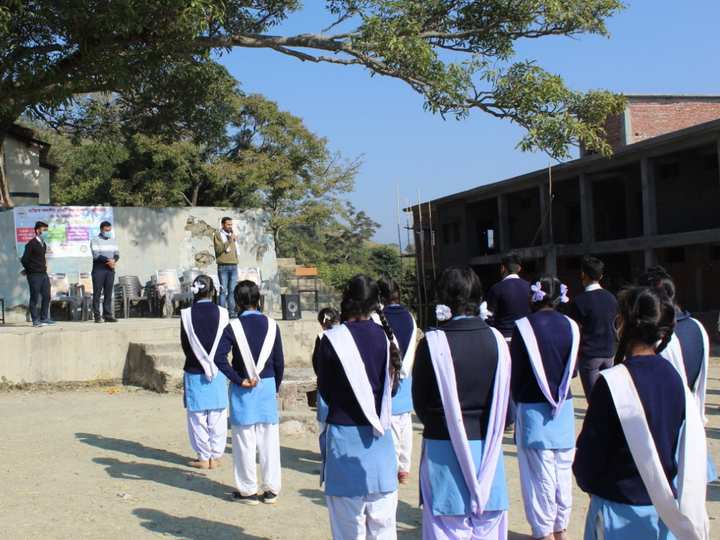


The COVID-19 pandemic has had a tremendous impact on both the physical and mental health of people throughout the world. Compared to the pre-pandemic times, no one feels safe stepping outside their houses, not even for work. A number of studies have found that the major brunt has been experienced by the young and the adolescents. (1)
This article reviews why and in what ways the adolescent and youth have been affected by the pandemic. Before the pandemic, youth was always on the go, attending schools, colleges, and other institutions having good interpersonal interaction among peers as well as mentors along with their extended family, cousins, and so on. But the lockdown and home confinement suddenly disrupted their studies, physical activities, outdoor fun, and peer interaction (2). The unexpected closure of schools and colleges led to a barrier for the young minds to have the usual emotional and physical support they may have normally received from their peers and friends. There was an unforeseen disruption of interpersonal relationships, and social interaction. This has resulted into boredom, anxiety and depressed mood in a high proportion of youth. Many are also worried regarding the cancellation of exams, dissatisfaction from online classes, and other academic activities and the bleak future lying ahead of them, that includes college admissions and job offers being hindered or cancelled. These seem to have stressed their formative years of life. This may in turn lead to an increased frustration, anger and irritability among the youth of our society, when combined with the complexities that come with adolescent age itself. Another portion of the youth who were already using substance now seem either to be indulging more or due to lack of resources to acquire more substances, are experiencing withdrawal effects which may worsen their already present dependency disorder.
Adding to it is a sudden peak of internet addiction and increased screen time, which has been reported to cause anxiety and sleep disorders, furthermore, aggravating the condition. Apart from that, disruption of physical activities has led them to become couch potatoes, stranded in their homes, further leading them to an unhealthy lifestyle. This might put them at risk of accessing displeasing content and some may even be vulnerable to online bullying.
In some underprivileged households, due to lack of job and money, youth is experiencing lack of ample food and other resources. Another problem is that in some households, youth, mostly females are more vulnerable to getting exploited and assaulted. Chiefly the most depressing part has been the interpersonal relationships growing apart, quarantine and the fear of losing or infecting loved ones with the virus. (3)
We should all come up together to fight against this deadly virus, gripping throughout the face of earth. Many resources and helpline numbers have come up to help in these problems related to youth. Parental help is always the first help that the youth can access (4). One should focus on connecting to peers and family through whatever resources are present. Also, the most important aspect is to have the right information about the infection and how it spreads. Limit the internet use, and importantly spend time with families, which we would never have got if it weren't for this virus. Youth can also be encouraged to follow their creative hobbies during this time to attain a much-needed mental peace. Feeling stressed, angry, and sad is normal. It is understood that adjusting to new ways of learning and work is hard, but it is becoming a part of our lives. So, making the most of it, is the only choice in our hands. We ourselves need to find ways to adapt and cope to the current scenario and we can always seek help whenever required. Hence there is a need for more counsellors, psychologists, and such trained personnel for providing help in these trying times of dire need. And youth must be made aware about talking to the ones they trust, sharing any negative thoughts they may be experiencing and also be on the lookout for their own near-and-dear ones, helping each other out through these times. Let us end with an inspirational quote, giving us hope for our future and teaching us how to be grateful for each new day.
“This virus is creating new ways for everyone to think of how to keep your family and friends safe. We are in an uncharted territory and we will all learn together. At one time I did not know how much time our family would have together. So, I have gratitude now for every day that we get to be together.” -Christin Gigstad.
Authors:
K. Vidhya, MBBS student, AIIMS Rishikesh
and
Dr Santosh Kumar
Associate professor
CFM AIIMS Rishikesh
References:

| YOUNG DOCTORS MOVEMENT |STATE LEADERS | FMPC 2019 | FMPC 2020
| AFPI
© All rights reserved 2020. Spice Route India 2020
Contact us at TheSpiceRouteIndia@gmail.com